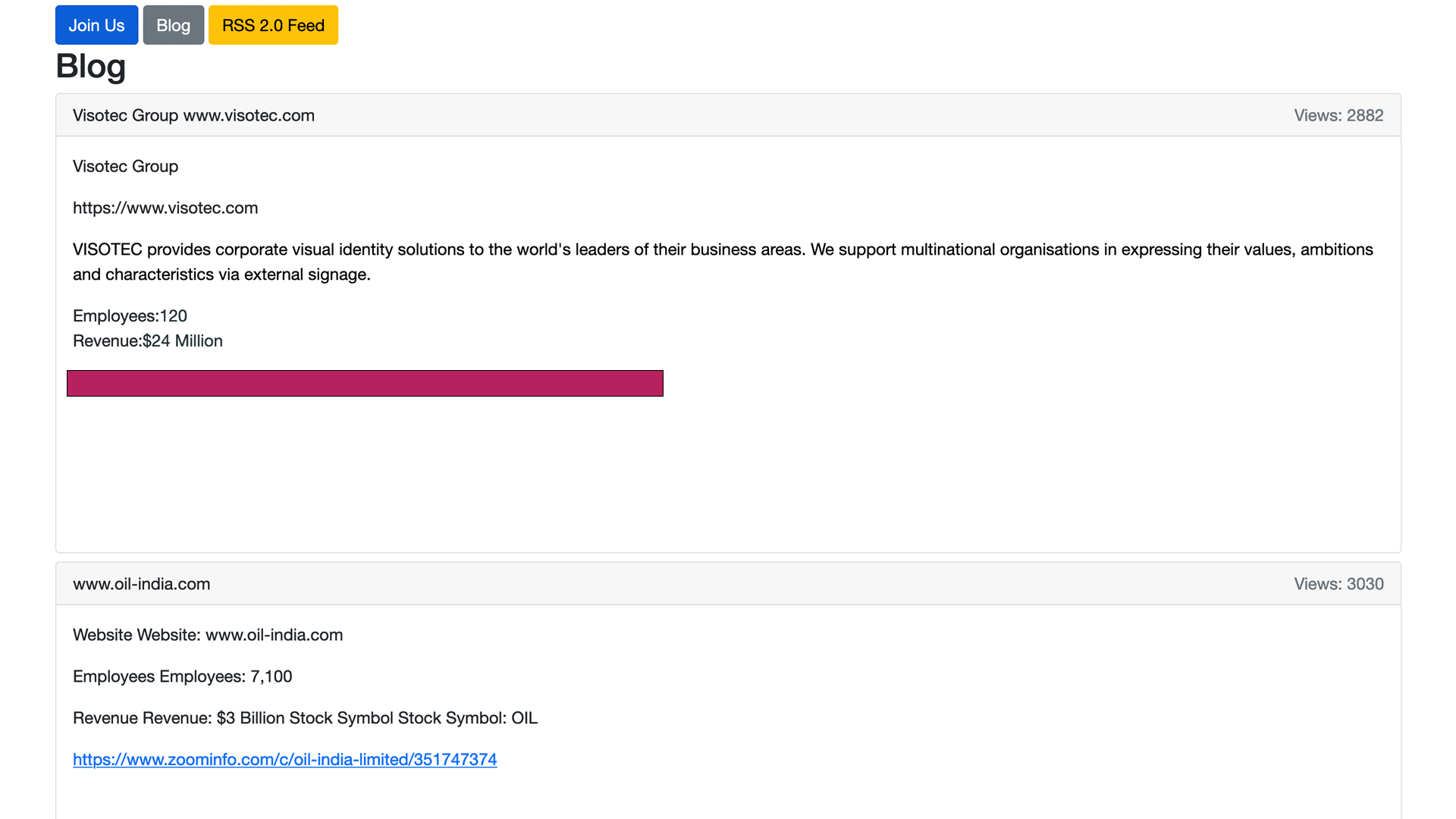REvil ransomware group's infrastructure comes back online hinting at fresh campaign
The ransomware gang's old deep web infrastructure is now redirecting to a new website with new victims


Recent observations made by cyber security researchers have led many to believe that the REvil ransomware group, or another group with ties to REvil, is operating a new ransomware operation.
Sometimes referred to as Sodinokibi, REvil was responsible for some of the most high-profile ransomware attacks of 2021, including the hacks on JBS Foods and Kaseya, before shutting down towards the end of the year.
The scariest security horror stories of 2021 Russia's "politically motivated" REvil raid could be used as leverage, experts warn REvil demands $70 million ransom after Kaseya supply chain attack
Some researchers noted the return of REvil’s ‘happy blog’ - the place where it announced its hacks - on 19 April, returning an Nginx 404 error. Others said the signs of a return started as far back as December, one month after law enforcement made the original arrests of the gang members.
Using the TOR onion address used for REvil’s original happy blog, prospective visitors are now redirected to a new website where there are currently 26 pages filled with details of the group’s successful hacks, largely old hacks previously claimed by REvil.

Among the new additions is Oil India, which disclosed a cyber security incident last week, and Visotec Group, which has not publicly disclosed any breach yet, and its website is still online.
The blog notes that Oil India will not continue a negotiation process, a decision that has led the group to leak internal financial documents and contracts.
In addition to the old happy blog onion link redirecting to the new site, another observation made by researchers was that REvil’s old TOR payment domains are also redirecting to the new blog too.
Sign up today and you will receive a free copy of our Future Focus 2025 report - the leading guidance on AI, cybersecurity and other IT challenges as per 700+ senior executives
The new blog also has a recruitment page that details the proposed 80/20 split of the ransom payment between the gang itself and the hacker who breached a company, plus details on how to demonstrate experience with hacking.
Although a concrete connection between the emergence of the new blog and REvil cannot definitively be made, whoever placed the redirect on
Although an official announcement has not been made linking the new blog to the REvil gang, the individuals responsible for placing a redirect on REvil’s old website and payment link would have had access to the old infrastructure, leading many to believe the notorious ransomware operators are back.
The announcement comes weeks after a Russian official claimed the US ceased negotiations with the country on matters of cyber security, suggesting the US was the aggressor in cyber space, not Russia.
The cyber security authorities of Five Eyes alliance members also reiterated on Wednesday that organisations should prepare for Russian state-sponsored cyber attacks, particularly focused on critical infrastructure.
A brief history of REvil
RELATED RESOURCE

Ransomware and Microsoft 365 for business
What you need to know about reducing ransomware risk
REvil is a ransomware group believed to be based in Russia and has claimed responsibility for numerous hacks involving ransomware in recent years.
Days after the massively impactful hack on Kaseya in 2021, REvil disappeared for months, many presuming they attracted too much attention from law enforcement given the global disruption it caused.
REvil briefly reactivated parts of its infrastructure months later, including its original happy blog and the online portal it used to negotiate ransom payments with victims.
International law enforcement agencies arrested several Ukrainian and Russian alleged REvil members in November, with the Russian state also arresting more individuals in January of this year, leading some experts into believing the move could be used as political leverage against the US.
It’s common for ransomware groups to go through periods of activity and inactivity, the latter of which is usually masked behind a fake ‘shutdown’ before the group resurfaces under a new branding and a fresh moniker.

Connor Jones has been at the forefront of global cyber security news coverage for the past few years, breaking developments on major stories such as LockBit’s ransomware attack on Royal Mail International, and many others. He has also made sporadic appearances on the ITPro Podcast discussing topics from home desk setups all the way to hacking systems using prosthetic limbs. He has a master’s degree in Magazine Journalism from the University of Sheffield, and has previously written for the likes of Red Bull Esports and UNILAD tech during his career that started in 2015.
-
 Swiss government data published following supply chain attack – here’s what we know about the culprits
Swiss government data published following supply chain attack – here’s what we know about the culpritsNews Radix, a non-profit organization in the health promotion sector, supplies a number of federal offices, whose data has apparently been accessed.
-
 GitHub CEO Thomas Dohmke thinks there’s still a place for junior developers in the age of AI
GitHub CEO Thomas Dohmke thinks there’s still a place for junior developers in the age of AINews GitHub CEO Thomas Dohmke believes junior developers still play a crucial role in the hierarchy of software development teams, and AI won't change that any time soon.
-
 Swiss government data published following supply chain attack – here’s what we know about the culprits
Swiss government data published following supply chain attack – here’s what we know about the culpritsNews Radix, a non-profit organization in the health promotion sector, supplies a number of federal offices, whose data has apparently been accessed.
-
 Ransomware victims are getting better at haggling with hackers
Ransomware victims are getting better at haggling with hackersNews While nearly half of companies paid a ransom to get their data back last year, victims are taking an increasingly hard line with hackers to strike fair deals.
-
 LockBit data dump reveals a treasure trove of intel on the notorious hacker group
LockBit data dump reveals a treasure trove of intel on the notorious hacker groupNews An analysis of May's SQL database dump shows how much LockBit was really making
-
 ‘I take pleasure in thinking I can rid society of at least some of them’: A cyber vigilante is dumping information on notorious ransomware criminals – and security experts say police will be keeping close tabs
‘I take pleasure in thinking I can rid society of at least some of them’: A cyber vigilante is dumping information on notorious ransomware criminals – and security experts say police will be keeping close tabsNews An anonymous whistleblower has released large amounts of data allegedly linked to the ransomware gangs
-
 It's been a bad week for ransomware operators
It's been a bad week for ransomware operatorsNews A host of ransomware strains have been neutralized, servers seized, and key players indicted
-
 Everything we know about the Peter Green Chilled cyber attack
Everything we know about the Peter Green Chilled cyber attackNews A ransomware attack on the chilled food distributor highlights the supply chain risks within the retail sector
-
 Scattered Spider: Who are the alleged hackers behind the M&S cyber attack?
Scattered Spider: Who are the alleged hackers behind the M&S cyber attack?News The Scattered Spider group has been highly active in recent years
-
 Ransomware attacks are rising — but quiet payouts could mean there's more than actually reported
Ransomware attacks are rising — but quiet payouts could mean there's more than actually reportedNews Ransomware attacks continue to climb, but they may be even higher than official figures show as companies choose to quietly pay to make such incidents go away.